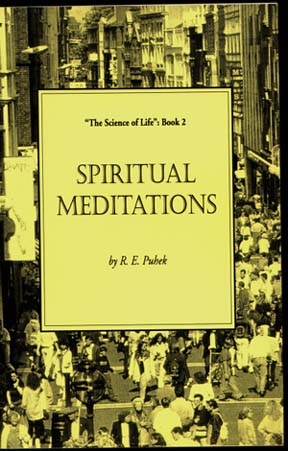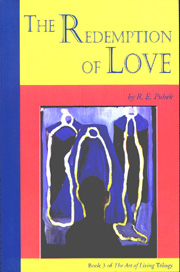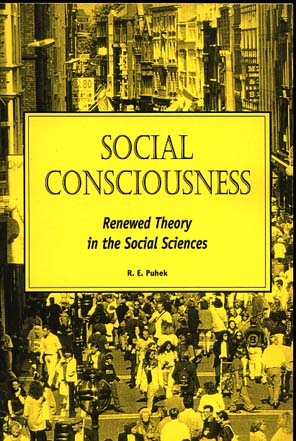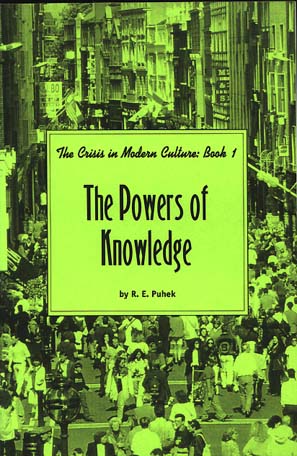Title: Spiritual Meditations
Author: Ron Puhek
[$5, postpaid. A huge discount off of retail to get you to see what it’s all about!] “Spiritual Meditations” is an excursion into human spiritual development. Its primary focus is on the practices that will allow us to elevate our understanding so we might better perceive the standard of value that can inwardly bring us peace and outwardly guide us to the best life possible. Integrative knowledge is essential to both, and methods of pursuing such knowledge are essential if we are to gain it and live fuller, less violent, and more harmonious lives. None of the methods prevailing today is adequate to the task of arriving at integrative knowledge. This book presents part of the process of an effective response to life. It is also the second book in the trilogy “The Science of Life,” representing the second stage of development. (166 pages, 5.5×8.5, paper.)
This title is a Fifth Way Press imprint from OYB. It is sponsored by the MIEM, the Michigan Institute of Educational Metapsychology—a fancy somewhat tongue-in-cheek way of saying “studying and teaching a philosophy for living today, inspired by the best of the past.” The institute has been represented for 30 years by weekly meetings of quiet, polite folk, who passed around these writings in a form of samizdat prior to this publication. These are often people from the ‘helping’ professions who see that their ways need help. It also includes students who need help to stay true to what they are learning. They are all in desparate straits. Due to modernism. The ‘Fifth Way’ concept comes from ‘the Fourth Way’ of Gurdjieff. The traditional three ways to contact reality were: the emotional way of the monk, the intellectual way of the yogi, and the physical way of the fakir. These were recently joined by the fourth way of the householder, one who learns from everyday life, who does not withdraw. The Fifth Way takes the best of all ways without leaving any behind, transcending them all: count your fingers: thumbs up! If you like Simone Weil and St. Theresa of Avila, you’ll like Puhek. It’s plainly written but intense philosophy for a modern age. His reflections integrate and build on many works, especially Plato, Sartre, Jung and Freud.



